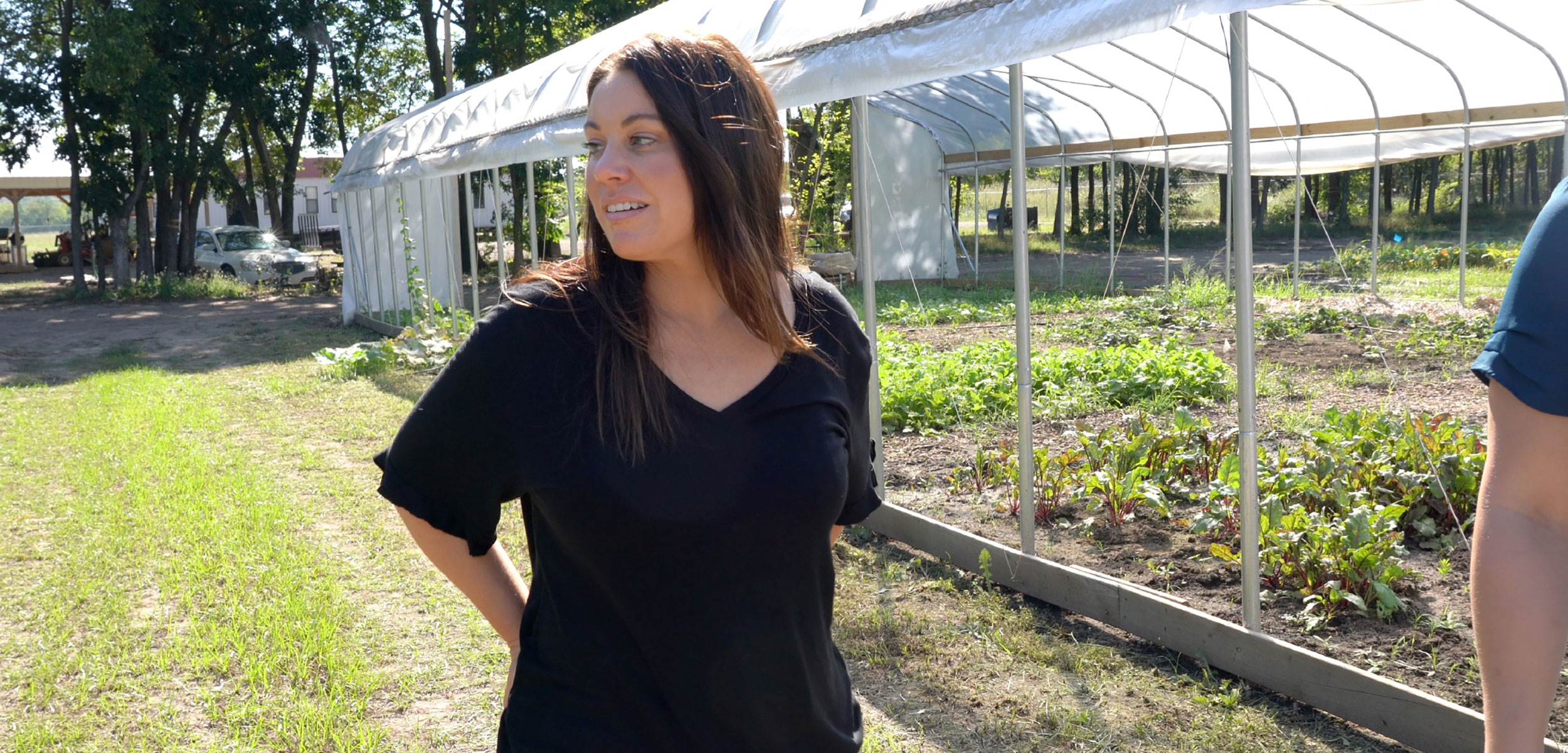
$5.5M in grants awarded to OSU-CHS Center for Indigenous Health Research and Policy
Tuesday, September 28, 2021
Media Contact: Sara Plummer | Communications Coordinator | 918-561-1282 | sara.plummer@okstate.edu
The Center for Indigenous Health Research and Policy (CIHRP) at the Oklahoma State University Center for Health Sciences was recently awarded two grants totaling about $5.5 million to study and improve indigenous food systems and health outcomes.
In August, CIHRP was awarded a five-year $3.5 million Tribal Community Supported Agriculture Grant from the National Institutes of Health’s National Institute on Minority Health and Health Disparities.
CIHRP is partnering with the Osage Nation and the National Congress of American Indians to implement and study new community supported agriculture (CSA) programs in the Osage Nation, document findings and if successful, compile a web-based toolkit for other indigenous communities to use to improve Native food systems.
The program would provide Osage citizens with a weekly share of freshly grown farm produce for six months, said CIHRP Director Valarie Blue Bird Jernigan, DrPH, MPH.
“CSAs have improved diet and health in non-American Indian populations and are evidence-based strategies recommended by the CDC and the Institute of Medicine to reduce health disparities,” Jernigan said. “We will test the efficacy of a CSA program combined with culturally-tailored nutrition and cooking education on diet and health outcomes among Osage citizens, evaluate its cost-effectiveness and develop a multimedia toolkit for disseminating findings.”
Most recently, CIHRP was awarded a two-year, $2 million grant from the Department of Health and Human Services that focuses on American Indian and Alaska Natives.
CIHRP will work with several partners including: the Osage Nation; Choctaw Nation of Oklahoma; the Southcentral Foundation in Anchorage, Alaska; the Center for Alaska Native Health Research at the University of Alaska Fairbanks; and the National Congress of American Indians to develop the Center for Indigenous Innovation and Health Equity (CIIHE).
Dr. Johnny Stephens, president of OSU-CHS, said the grants' focus on nutrition and overall health of Native populations coincides with the institution’s mission to meet the health care needs of rural and underserved Oklahoma.
“These programs and initiatives are another example of our commitment to work to transform the health and well-being of our Native communities and I’m proud that OSU and its Center for Indigenous Health Research and Policy is at the forefront of these efforts,” Stephens said. “I’m grateful for the support of our Oklahoma congressional delegation, as well as for those in Alaska and Hawaii.”
The University of Hawaii also received a two-year, $2 million grant to develop a center that will focus on Native Hawaiian and Pacific Islanders.
“The goal of the Center for Indigenous Innovation and Health Equity is to restore indigenous food systems and traditional food practices to promote healthy eating and eliminate diet-related disparities,” Jernigan said. “I’m also very proud that the center will be comprised of all Native-led investigators and researchers at each site. It’s such an important accomplishment.”
The center will focus on three areas: education and training; research and evaluation; and dissemination. The CIIHE will build community research capacity, identify and prioritize sustainable indigenous interventions, and then implement and evaluate those interventions, she said.
“These types of grants that go to indigenous researchers and directly to indigenous communities are building the capacity of Native American nations to conduct research while at the same time working to eliminate health disparities,” Jernigan said. “We cannot emphasize enough the value of community-driven, community-led research.”
